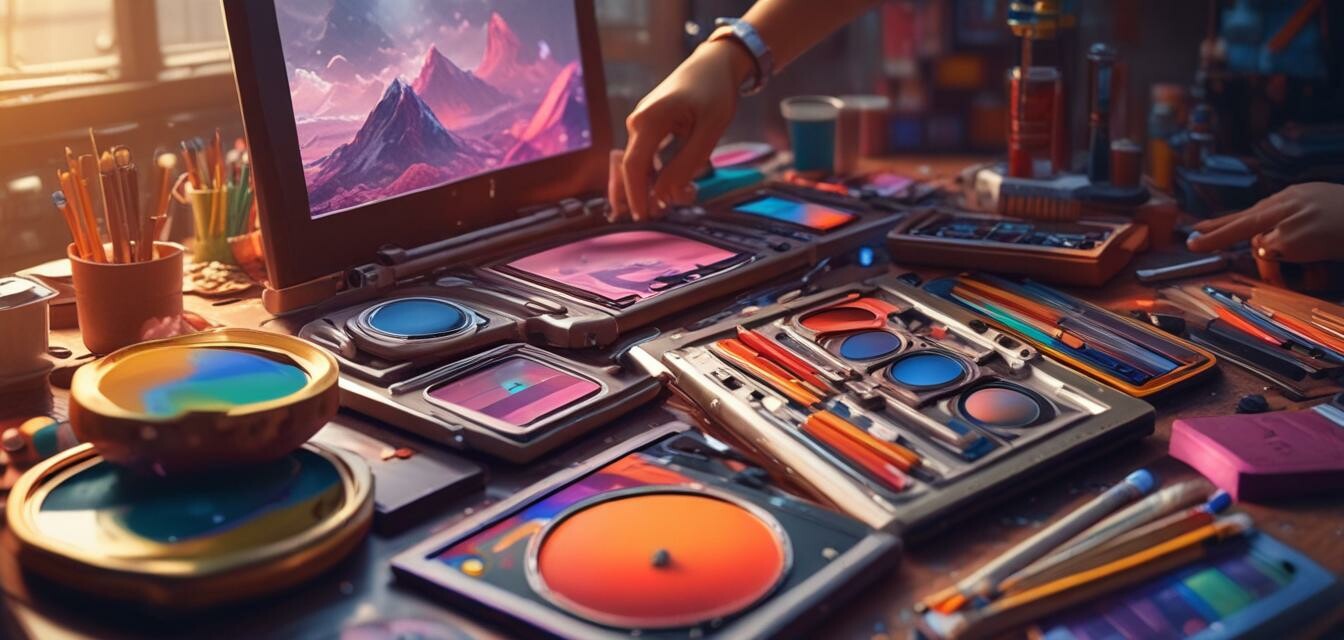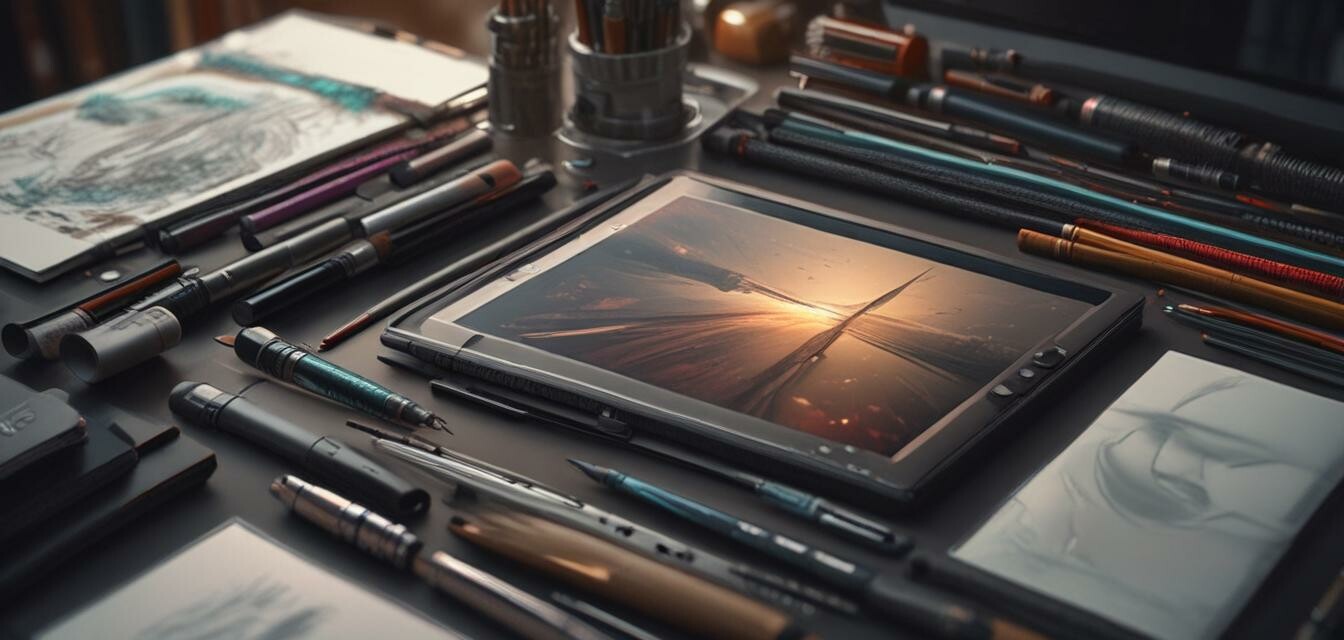
Digital Art and Graphics
Key Takeaways
- Understanding digital art creation tools is essential for artists.
- Effective sale strategies can maximize earnings.
- Engaging with the community is crucial for promotion.
- Diverse platforms are available for selling digital art.
- Continuous learning helps in refining artistic skills.
In the world of art, digital art has emerged as a versatile and vibrant medium. From illustrations and graphic designs to paintings and animations, artists worldwide are leveraging technology to push creative boundaries. This guide explores the ins and outs of digital art creation and affords insights into effective sale strategies.
Getting Started with Digital Art Creation
Creating digital art can seem daunting at first, especially with the plethora of tools available. Below is a concise overview of essential equipment and software to kickstart your artistic journey.
| Type | Recommended Tools |
|---|---|
| Graphic Tablets | Wacom, Huion, XP-Pen |
| Software | Adobe Photoshop, Corel Painter, Clip Studio Paint |
| Online Platforms | Procreate, Canva, Sketch |
Understanding Digital Art Tools
Before diving into creation, it's essential to familiarize yourself with various tools available for digital artists:
- Graphic Tablets: These allow you to draw directly on the screen, providing a more natural drawing experience.
- Software Applications: Applications like Adobe Creative Suite and Krita offer numerous features to enhance creativity.
- Color Palettes: Understanding color theory and using custom palettes can elevate your artwork.
- Brush Techniques: Experimenting with different brush settings can lead to unique textures and styles.

Creating Stunning Digital Art
Once you are familiar with your tools, it's time to unleash your creativity. Here are some fundamental concepts to consider:
1. Choose Your Style
Your style is what sets you apart. Explore various styles such as:
- Realism
- Abstract
- Cartooning
- Surrealism
2. Composition and Layout
A well-composed piece attracts attention. Consider using tools that help plan your layout before starting your artwork.
3. Utilize Layers
Layers are essential in digital art, enabling you to work on different components without affecting the entire piece.
Strategies for Selling Your Digital Art
Now that you've created some stunning digital art, it's time to focus on effective sales strategies.
Pros
- Wide reach to potential customers through online platforms.
- Ability to sell artwork multiple times.
- Lower overhead costs compared to physical artwork.
Cons
- Market saturation can make it difficult to stand out.
- Quality may be overlooked due to digital reproduction.
- Need for marketing skills to effectively promote artwork.
Best Platforms to Sell Digital Art
Choosing the right platform is crucial in maximizing visibility. Here are some popular options:
| Platform | Best For | Commission Fees |
|---|---|---|
| Etsy | Handmade and digital products | 5% + $0.20 listing fee |
| Redbubble | Prints and merchandise | Percent of sale (varies) |
| Gumroad | Digital downloads | 8.5% + $0.50 per sale |
| ArtStation | Art portfolio and sales | 5% for pro members |
Market Your Digital Art
Effective marketing is vital for success. Here are some strategies:
- Engage on social media platforms like Instagram and Pinterest.
- Join online communities and forums related to digital art.
- Offer limited-time discounts to encourage purchases.
- Network with other artists for collaboration opportunities.

Continuous Improvement and Learning
The world of digital art is constantly evolving. Continuous learning through online courses and workshops can significantly improve your skills. Consider the following:
- Enroll in courses on platforms like Udemy or Coursera.
- Follow popular digital artists on social media for inspiration.
- Experiment with new techniques and tools to diversify your skills.
Conclusion
Digital art and graphics present an exciting opportunity for both creativity and financial gain. As you explore your artistic capabilities and develop effective sales strategies, don’t forget to embrace community engagement to truly thrive in this vibrant digital landscape.

